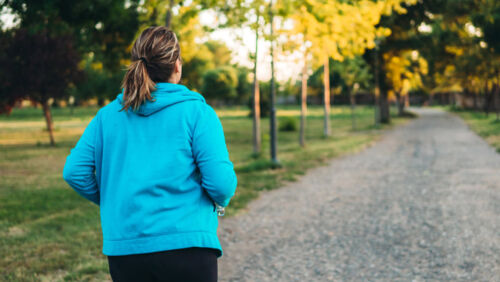Aussies quit drinking as living costs soar
By Tom Watson
Like so many Australians, 24-year-old Emma Valette from Sydney has been dealing with rising costs in all parts of her life over the last year.
"I've noticed a massive difference in the cost of living, first of all with rent. We moved because our house in Newtown was increasing by $300 a week which is way too substantial, so we found this house in Surry Hills which is actually cheaper than the one we were in.
"Then just in general, bills like electricity, gas and water have all gone up. I've also found a difference in grocery shopping because I was used to spending like $60-$70 a week, but that's gone up to more like $80-$90 just from price inflation. So obviously my budget's become tighter each week."
With the cost of necessities rising higher and higher, Valette has had to make room in her budget by cutting back on discretionary expenses - expenses like alcohol.
While cost - particularly in the context of going out to a bar or club - is not the only factor influencing the alcohol consumption of Valette and her friends', it is certainly playing a role.
"Budget-wise, we're all quite aware that going out is a huge expense, so we prefer just making food and seeing each other and then having a nice bottle of wine," she says.
"I think all of us are just realising that there's more to spend on and there are nicer things to save for than, you know, spending $200 on the weekend going out."
Valette is by no means alone here. In a recent analysis of spending, ubank found that alcohol-related transactions among its millennial customers were down by more than a quarter (28%) over the year to March, and 15% lower among the Generation Z cohort.
Andrew Morrison, chief product and growth officer at ubank, says that the trend was relatively consistent, but the size of the drop was surprising.
"So across the board, in every state across Australia, except Northern Territory where there have been some legislative changes apparently, it's been pretty consistent across the age brackets.
"Our initial reaction was certainly surprise and interest. But the more we drilled into it, it doesn't necessarily come as a surprise that there's an ongoing decline in spending. Particularly in the Gen Z group it seems they're spending less and less over time, but certainly year-on-year it's quite a big drop."
Of course, Australians aren't only cutting back on their alcohol spending - subscription services and takeaway food were also identified by ubank as areas that have taken a hit as living costs have risen.
"We're certainly hearing everywhere at the moment that people are focusing on where they're spending their money and trying to adjust their categories to reflect the increases in cost that they're seeing on things like rental costs or their daily services," Morrison says.
Giving 'hangxiety' the flick
While it seems as though the recent spike in living costs is cutting alcohol-related spending, and likely consumption, this latest trend is part of a broader shift in the way Australians, including younger Australians, consume alcohol.
Between 2004 and 2019 the proportion of Australians aged 14 and over who reported having a full serve of alcohol in the previous 12 months dropped from 84.4% to 76.6%, figures from the Australian Institute of Health and Welfare show.
Dominique Robert-Hendren, the head of clinical innovation and digital health at not-for-profit organisation Hello Sunday Morning, says that this downward trend has also been playing out in younger age groups since the early 2000s.
"Part of that is making healthier choices, but one of the other things that we can probably link it to is social media and people engaging in a very different environment," she says.
"You've also got these major influencers out there who are really pushing this shift in attitude. So the younger age group are going to be influenced, but in a healthy way.
"I think they [younger Australians] are realising that they don't want, nor can they afford, to be waking up the next day feeling on edge or irritable, or being unable to relax. So they're making different choices and not necessarily abstaining completely, but being a lot more mindful about what they're drinking."

Avoiding the consequences of a hangover and being able to enjoy the weekend in full is certainly part of the motivation for the shift Emma Valette has witnessed among her friends.
"I think it's a change of priorities first of all, where my friends and I have switched to this mentality of budgeting to go and do activities, or to go traveling and spend a weekend somewhere. I think, especially with COVID, we realised that traveling is actually really nice. It is a lot of money, but the experience is so much nicer for your mental health than going out drinking and being hungover the next day.
"I also think everyone's kind of aware of mental health nowadays and there's this whole term of hangxiety in our generation. It just gets really stressful when you're anxious because you feel like you're not doing anything with your day and you spend your whole Sunday in bed and then you spend money on eating out because you don't want to cook.
"It's actually kind of nice to wake up on a Sunday feeling refreshed and you go to the markets and you go to the beach with your friends and you're actually enjoying it and not trying to fight a hangover."
10 tips to help cut back
Whether for cost, health or any other reasons, Robert-Hendren has the following tips for anyone looking to cut back on their alcohol consumption.
- Set yourself a goal.
- Plan activities not focused on alcohol.
- Plan ahead and tell your friends up front. Prepare some responses if asked why you're not drinking, e.g. 'I'm on a break from drinking right now', 'I've decided to make health my priority this month', 'I'm driving', 'I've got an early appointment tomorrow morning'.
- Set limits and know the healthy standard limits of no more than four standard drinks in any one day and no more than 10 standard drinks per week.
- Drink at a slower pace, have spacers like water in between and try not to keep up with others.
- Set yourself a budget and stick to it. To keep motivated, calculate how much you will save.
- Eat before and during drinking because food can help slow down the effects of alcohol.
- Don't be pressured - it's alright to say no.
- Be mindfully present. Once you're at an event, savour the experience of being clear headed and engage in meaningful conversations.
- The next day reflect on your experience and remind yourself of all the benefits of cutting back such as better quality sleep, improvement in mood, benefits for your heart and immune system.
Need to talk?
Alcoholics Anonymous: 1300 222 222
Hello Sunday Morning: https://hellosundaymorning.org/
Lifeline: 13 11 14
Get stories like this in our newsletters.



